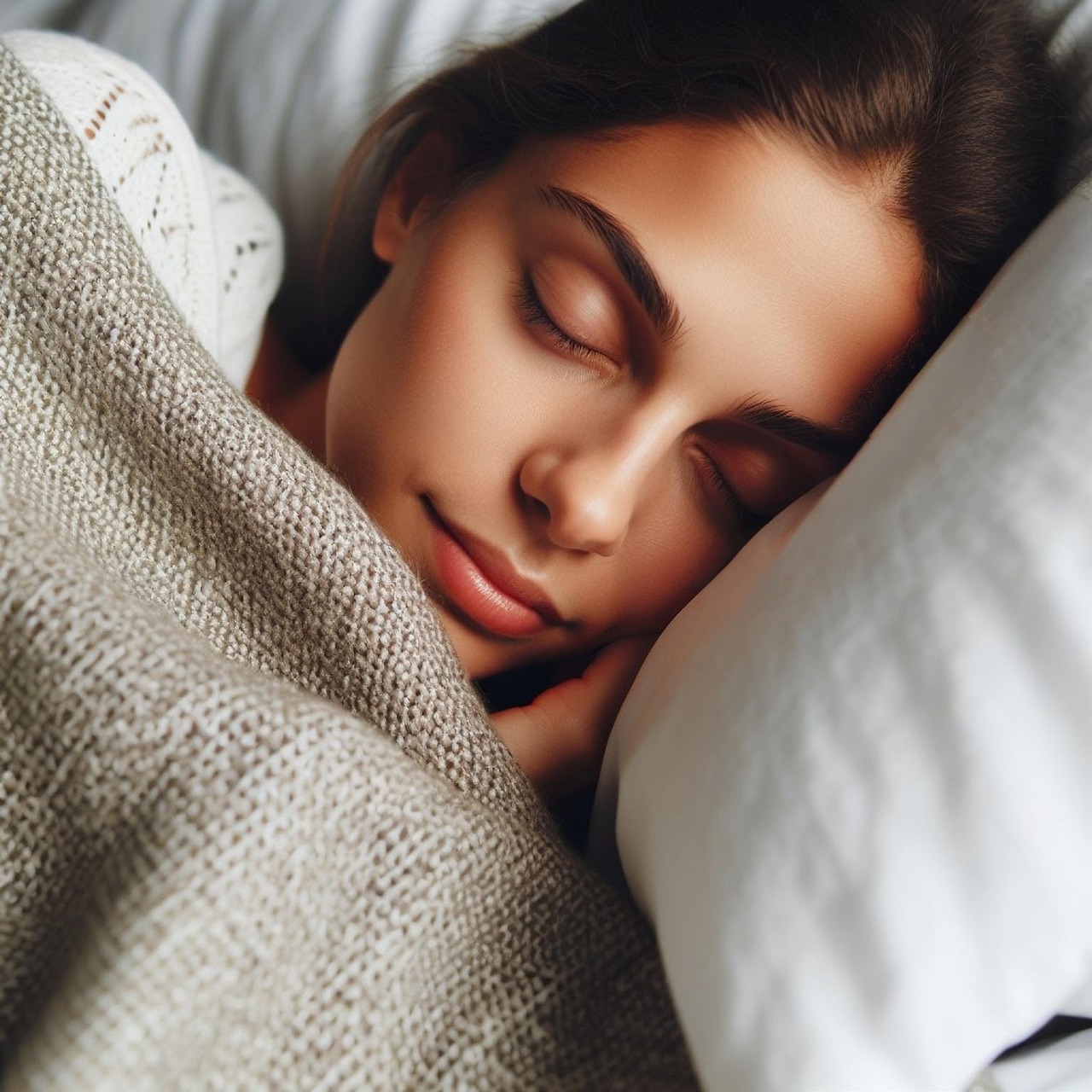19 Steps You Can Take Right Now to Enjoy More Relaxing Sleep

Sleep is an essential part of our lives, yet many of us struggle to get enough of it. Without good sleep, our bodies cannot function properly, and it can negatively impact our overall well-being. If you find yourself tossing and turning at night, struggling to fall asleep or stay asleep, it's time to make some positive changes and adopt new relaxing sleep tips. By implementing these sleep-inducing habits, you can start enjoying longer and more peaceful sleep.
1. Stick to a Consistent Sleep Schedule: Our bodies thrive on routine, and establishing a consistent sleep schedule can significantly improve the quality of our sleep. Try going to bed and waking up at the same time each day, even on weekends. This helps regulate your body's internal clock and promotes better sleep. Maintaining a constant sleep schedule and calming down your mind while lying in bed are easy ways to sleep better.
2. Create a Relaxing Bedtime Routine: Wind down before bed by creating a relaxing bedtime routine. Engage in activities that help you relax, such as taking a warm bath, reading a book, or practicing deep breathing exercises. Avoid stimulating activities, such as watching TV or using electronic devices, as they can interfere with your ability to fall asleep.
3. Establish a Sleep-Friendly Environment: Your sleep environment plays a crucial role in the quality of your sleep. Keep your bedroom cool, dark, and quiet. Use blackout curtains or an eye mask to block out any unwanted light, and earplugs or a white noise machine to mask any noise disturbances. Invest in a comfortable mattress and pillows that support your body and promote proper alignment.
4. Limit Caffeine and Alcohol Intake: While a cup of coffee or a glass of wine may provide temporary relaxation, consuming caffeine or alcohol close to bedtime can disrupt your sleep. Caffeine is a stimulant that can stay in your system for hours, making it harder to fall asleep. Alcohol, on the other hand, may initially make you feel drowsy but can lead to fragmented sleep and frequent awakenings later in the night.
5. Avoid Heavy Meals and Fluid Intake Before Bed: Eating a heavy meal or consuming a large amount of fluids close to bedtime can interfere with your sleep. Digesting a large meal requires energy, which can make it difficult to fall asleep. Additionally, excessive fluid intake can lead to frequent trips to the bathroom during the night, disrupting the continuity of your sleep.
6. Create a Comfortable Sleep Environment: Your sleep environment should be comfortable and conducive to rest in. Invest in high-quality bedding, including breathable sheets and a supportive mattress. Keep your sleep space clutter-free, creating a sense of tranquility. Ensure your bedroom is well-ventilated and at a comfortable temperature.
7. Exercise Regularly: Regular exercise not only improves your overall health but also promotes better sleep. Engaging in physical activity during the day helps expend energy and reduces feelings of restlessness at night. Aim for at least 30 minutes of moderate-intensity exercise, such as brisk walking or cycling, most days of the week. These are effective methods to improve sleep quality naturally. However, avoid exercising too close to bedtime, as it can have a stimulating effect and make it harder to fall asleep.
8. Manage Stress Levels: High levels of stress and anxiety can make it difficult to relax and fall asleep. Incorporate stress management techniques into your daily routine, such as practicing mindfulness meditation, engaging in deep breathing exercises, or journaling. Take time to unwind before bed, engaging in activities that bring you joy and promote relaxation. These activities are some of the best bedtime habits for achieving deep sleep.
9. Limit Exposure to Blue Light: The blue light emitted by electronic devices such as smartphones, tablets, and laptops can interfere with your sleep. This type of light suppresses the production of melatonin, a hormone that regulates sleep. Minimize your exposure to blue light in the evenings by turning off electronic devices at least an hour before bed or using blue light-blocking glasses.
10. Create a Sleep-Friendly Bedroom: If you are seriously concerned about how to enjoy uninterrupted sleep, your bedroom should be a sanctuary for sleep. Use soft, calming colors that promote relaxation and tranquility. Remove any distractions, such as electronics or work-related items, from your sleep space. Consider using room-darkening curtains or an eye mask to block out any unwanted light, ensuring a darker environment for sleep. These are useful, simple bedtime routines.
11. Practice Relaxation Techniques: Incorporating relaxation techniques into your nightly routine can help prepare your body and mind for sleep. Try progressive muscle relaxation, where you systematically tense and then relax different muscle groups, or guided imagery, where you imagine yourself in a peaceful and tranquil environment. These techniques can help reduce anxiety and promote a restful night's sleep.
12. Consider a Sleep-Friendly Diet: Certain foods and drinks can either promote or hinder sleep. Incorporate sleep-friendly foods into your diet, such as warm milk, herbal teas (such as chamomile or lavender), cherries, nuts, or bananas. Avoid heavy, greasy, or spicy meals close to bedtime, as they can cause discomfort or heartburn, making it harder to fall asleep.
13. Create a Technology-Free Zone: Make your bedroom a technology-free zone to promote better sleep. The blue light emitted by screens can disrupt your body's natural sleep-wake cycle, making it harder to fall asleep. Establish a boundary where you leave your electronic devices outside the bedroom, allowing your mind to unwind and prepare for sleep. These are helpful, quick sleep relaxation techniques.
14. Create a Sleep-Inducing Atmosphere: Consider incorporating sleep-inducing elements into your bedroom atmosphere. Use aromatherapy with essential oils such as lavender or chamomile to create a soothing and relaxing ambiance. Play white noise, gentle nature sounds, or soft music to drown out any background noise and promote tranquility. This is how to best create a relaxing sleep environment at home.
15. Keep a Sleep Diary: Keeping track of your sleep patterns and habits can help identify any factors that may be interfering with your sleep. Keep a sleep diary, noting your bedtime routine, sleep environment, and any concerns or anxieties that may be keeping you awake. By analyzing these patterns, you can make informed adjustments and identify areas for improvement.
16. Practice Mindfulness Meditation: Mindfulness meditation is a powerful tool for managing stress and promoting relaxation, which can contribute to better sleep. Set aside a few minutes each day to practice mindfulness meditation, focusing your attention on your breath and allowing thoughts to come and go without judgment. This practice can help calm a racing mind and promote a sense of calm before bed. Doing these sleep-inducing activities are a natural sleep remedy.
17. Seek Professional Help if Needed: If you've tried implementing these habits and are still struggling with sleep, it may be time to seek professional help. Chronic insomnia or other sleep disorders may require medical intervention or guidance from a sleep specialist. They can provide personalized recommendations and treatment options to help you achieve better sleep.
18. Change Your Habits: When we change some of our habits, we will be able to sleep better. By implementing these habits such as sticking to a consistent sleep schedule, creating a relaxing bedtime routine, establishing a sleep-friendly environment, limiting caffeine and alcohol intake, and avoiding heavy meals and fluids before bed, we can enjoy longer and more peaceful sleep. Remember, good sleep is essential for our overall well-being, so we should make it a priority in our daily life.
19. Sleep Resources and Additional Help: If you're looking for further support and resources to improve your sleep, consider reaching out to sleep clinics, sleep specialists, or exploring reputable websites dedicated to sleep hygiene and promoting healthy sleep habits. Pay attention to these 19 proven steps for better sleep and relaxation so as to proactively improve your sleep, and soon you'll be waking up refreshed and ready to take on each day.
Check This Out!
|
| |
|
| |
|
|











